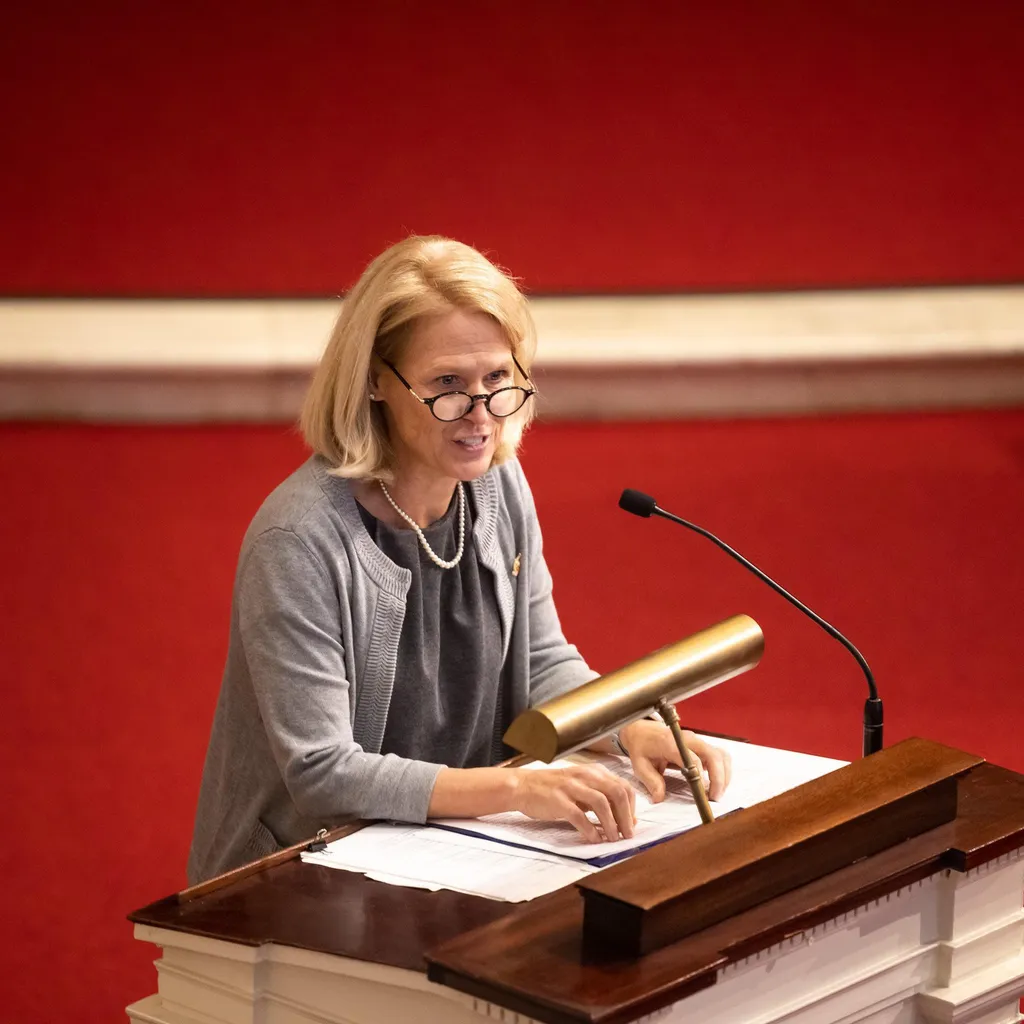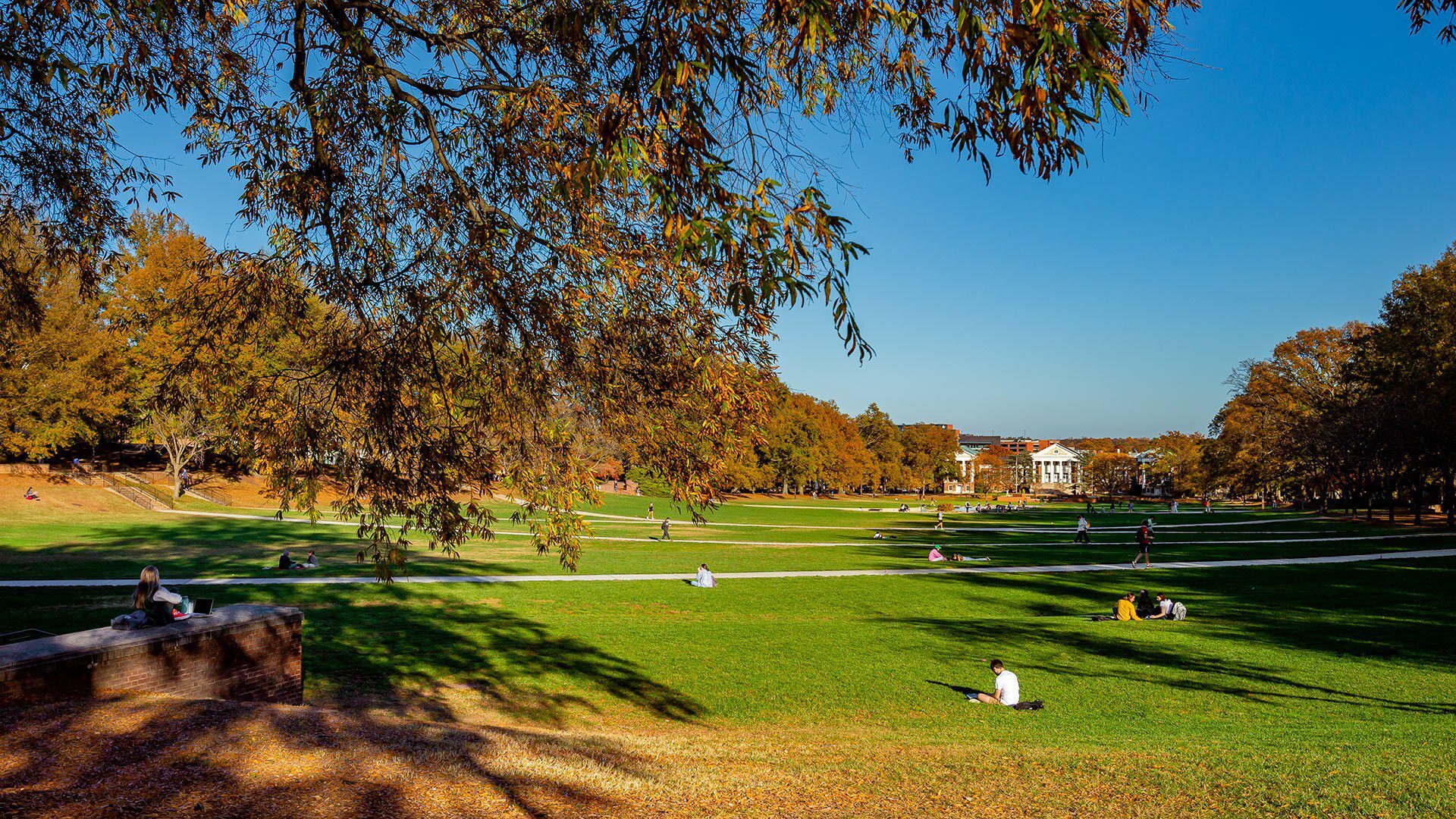- December 06, 2022
- By Chris Carroll
In the University of Maryland's new $30 million Grand Challenges Grants program, more potentially world-changing ideas will now get the chance to thrive.
Besides awarding three major institutional grants to UMD researchers (who will receive 100% matches from their academic units) to work toward establishing new research institutes, centers or academic units, university leaders have decided to grab the opportunity to fund other semifinalists in the category as well.

“We have nine semifinalists, and we have to narrow it down to three—but we don’t want to lose any of these incredibly promising, compelling ideas for addressing the world’s biggest challenges,” Senior Vice President and Provost Jennifer King Rice said.
The new Grand Challenge Impact Awards—up to $200,000 per year for two years with some additional matching from colleges—will be announced along with institutional and project grants (both individual and team-based) near the start of the Spring 2023 semester.
To address the world’s top challenges, from racial equity to pandemic preparedness to climate change, the university will invest up to $30 million in the grant program: Institutional winners will be awarded a total of $3 million over three years, including the college or school match, with up to 10 team project grants and 50 individual project grants each receiving total amounts of $1.5 million and $150,000, respectively.
Rice spoke to Maryland Today to provide an update on the selection process and explain how the program will strengthen research in every UMD college and school—and potentially benefit all of humanity.
What’s the status of the winner selection process?
We received 24 submissions for institutional grants by the deadline in July, and in September we narrowed that down to nine. In early November, those project teams made presentations to campus leaders including President (Darryll J.) Pines, myself and a number of key administrators at the university who could both help inform the decision on the finalists and also be instrumental in helping find additional sources of revenue for the projects, whether it’s from state or federal agencies, or from foundations and philanthropic sources. Now we’re in the process of narrowing this down to three winners. The other six projects will be offered Grand Challenge Impact Awards.
There were also 111 team and individual investigator project grant proposals submitted by the deadline in early October. At the end of January, we’ll announce the final awardees in all the categories.
What has most impressed you when you look at the full scope of the proposals?
Scope is exactly what I was going to say; I was impressed and fascinated by the range of topics covered. The president and I anticipated climate change-related proposals and projects addressing pandemic preparedness, but there were other compelling topics that we didn’t expect, like one addressing literacy and equity, and another focused on values-centered artificial intelligence.
This range of “big ideas” really underscores the importance of using this sort of crowdsourcing approach to accelerating solutions to the grand challenges of our time, which is a key element of the university’s new strategic plan.
How is this grant program unique?
Other universities that have introduced grand challenge initiatives have tended to focus on priorities identified by the administration, rather than leveraging the creativity and innovation in the academic community. Our approach that held multiple levels of grant competitions provided a mechanism for members of the community to bring their biggest and best ideas forward. The ideas all come from the faculty and staff, and all of our colleges and schools are represented. If you look at some of the institutional grant finalists, they’re representing upward of six or seven different colleges. That’s very powerful and reflects the type of interdisciplinary collaboration required to address these complex and enduring challenges.
We purposefully put an emphasis on working across disciplines and bringing people together to break down the silos that can develop at any institution. We also prioritized projects that provide innovative and new opportunities for students’ learning. After all, education is our core mission, and we want to prepare the next generation of leaders who will continue to take on complex and pressing problems.
The Grand Challenge Grants program was designed to advance key elements of our university strategic plan, Fearlessly Forward, which calls for investing in faculty, students, staff, alumni and partner capacity to work across disciplines to take on these enduring challenges and contribute in meaningful ways to the public good.
What’s the committee looking for? What sets a proposal apart?
Impact. The whole idea of these Grand Challenge Grants is to create meaningful, tangible, real-world impact on our communities and our society. One of the questions that we asked all of our groups was, “If this project is successful, in 10 years, what will have changed in our communities and in our world as a result of the work that this team is doing?”
We want to leverage the incredible contributions and expertise of our faculty, and enable that to be the building blocks for accelerating transformative change.
How might this transform things at UMD?
These projects—the institutional grants, the impact awards and the project grants—will advance UMD as a leader among universities committed to advancing the public good through our work. These grants will foster collaborations that build on all the important foundational science and humanistic work already taking place on campus to amplify our impact on the world.
Topics
ResearchUnits
Office of the Provost